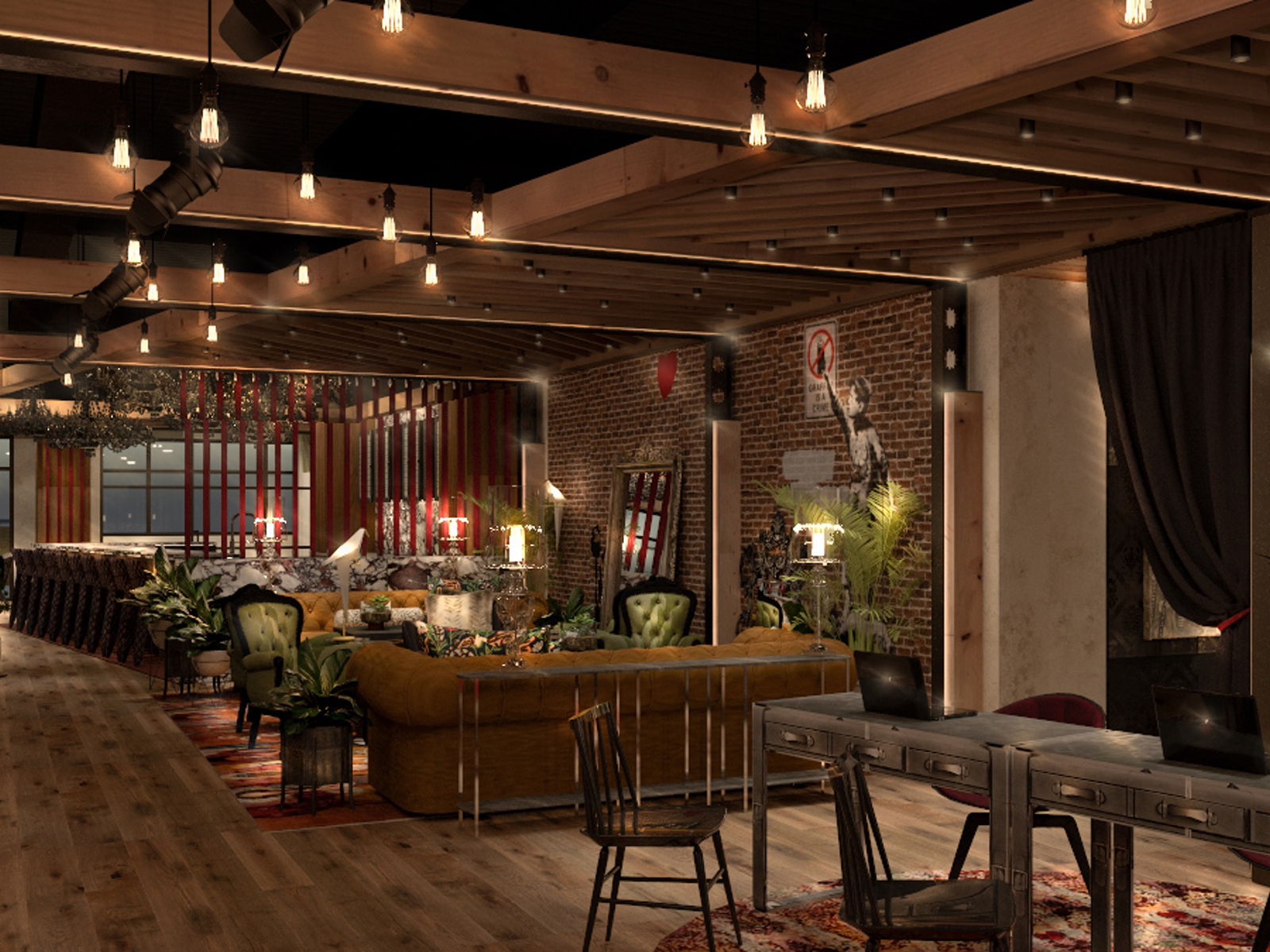The Local newsletter is your free, daily guide to life in Colorado. For locals, by locals. Sign up today!
Zoom calls, instant messaging, odd hours, no commute: This is the new normal for people working from home. Post-COVID-19, will workplaces return to the old normal? Or will businesses opt for smaller spaces to allow for more flexibility to work remotely? Maybe they’ll sign leases for larger offices, giving employees room to space out. Spoiler alert: No one knows for sure—but we’re likely to see a mix of everything.
Offices began reopening in early May at 50 percent capacity under Gov. Jared Polis’s Safer at Home order. Not all businesses have been eager to return, though. “For the most part, companies are hesitant to go back,” says Garrett Johnson, managing partner at Cresa in Denver, a commercial real estate company. “Most of my clients are taking a wait-and-see approach.” Some of Johnson’s customers say they won’t reopen offices until August or September, and a few are pushing that date into early 2021. Cresa’s Denver office reopened in early May, but only a handful of the 30 brokers had returned as of late June.
That's only $1 per issue!
That hesitance permeates through a range of industries, Johnson says; many companies, especially larger technology firms, don’t want to be the first to reopen.
Denver-based software developer Spire Digital’s office has been closed since mid-March, but COO Nick Coppolo says it will definitely reopen in the future. The space will be redesigned to “accommodate what we see going forward and how COVID-19 has changed. But I do think it’s important for employees to have a place to come work even if it’s on a limited basis,” he says.
Spire isn’t the only company to redesign its space. Traci Lounsbury, CEO and co-owner of Denver-based office furniture company Workplace Elements, says most companies are preparing for the short-term by installing signs reminding employees to wash their hands and maintain social distancing. Her company is also seeing businesses raise panel heights to create more of a barrier between employees, increase the size of workspaces, and opt for inexpensive solutions to get companies to the next phase of reopening.
“I have heard more often than not the long term is, ‘We’re going to see how this goes before we make any decisions,’” she says. “We see a lot of lease extension, versus taking on additional space, so that [the company] can learn a little bit before jumping into the future.”
Another challenge is that the open floor plans that have become popular over the past few years are not COVID-19 friendly environments, according to Johnson. “When you’re looking at [keeping] people at least six feet away, a lot of people’s offices just aren’t conducive to do that. So you have to go and put people back in shifts,” he says. Beyond the social distancing requirements, Denver has a mandatory mask order in place right now. Employees don’t have to wear a mask while at their desks if they are in a personal office or at least six feet away from others . However, when employees are in common spaces, walking around buildings, or interacting with others, a mask is required per the city’s ordinance.
With these restrictions in mind, some businesses have opted for more space while others are consolidating their footprints and moving to coworking spaces. In June, Denver-based coworking firm Shift Workspaces experienced a 20 percent increase in inquiries year over year, founder Grant Barnhill says.
“We’re seeing a lot of companies that are in traditional office spaces—that are downtown, that are in high-rise buildings—that really don’t want to be in this environment on the 20th floor of a large tower, and they want to be in a building that’s a little bit more approachable,” Barnhill says. Shift’s buildings are two to three stories high.

Community Advantage, an agency that provides at-home services for people with disabilities, recently consolidated its two offices in Longmont and Denver. The company is now leasing a 375-square-foot office at coworking firm Office Evolution’s new Northglenn location. Executive Director Jodi Merrill Brandt says before COVID-19 she was looking for ways her company could better utilize technology; the coronavirus just forced her to make the switch faster. After working remotely for a few months, she realized there are perks to having an office, such as a printer, but realized her company didn’t need multiple offices.
Flexible lease terms are also a benefit many companies are latching onto given the uncertainty of the future. Rather than signing a five- to 10-year lease, businesses can office at a coworking space on a monthly or annual basis. For businesses struggling to pay rent, grants and loans are available. Some businesses have been negotiating lease options one-on-one with their landlords.
As office leases expire, tenants are expected to put safety at the top of their priority list. Johnson says he has a handful of clients asking for their own buildings, space on a lower level of a high-rise, or an office with their own entry into the building. “All things are on the table and people are just trying to throw all ideas out there and see what’s going to work for them,” he says. “But I think that access and [being] able to control your space is going to be increasingly important as people look to move.”
Plain and simple, remote working is not for everyone. Some offices will reopen, some businesses will have employees permanently work from home, and others will strike a balance between the two. It all depends on the company, says Rick Door, managing partner at Cresa.
“We’re all just speculating,” says Bruce Johnson, managing principal at Cresa’s Denver location. “This is something that is difficult…. There’s news coming out all the time. Nobody’s really got it figured out.”







